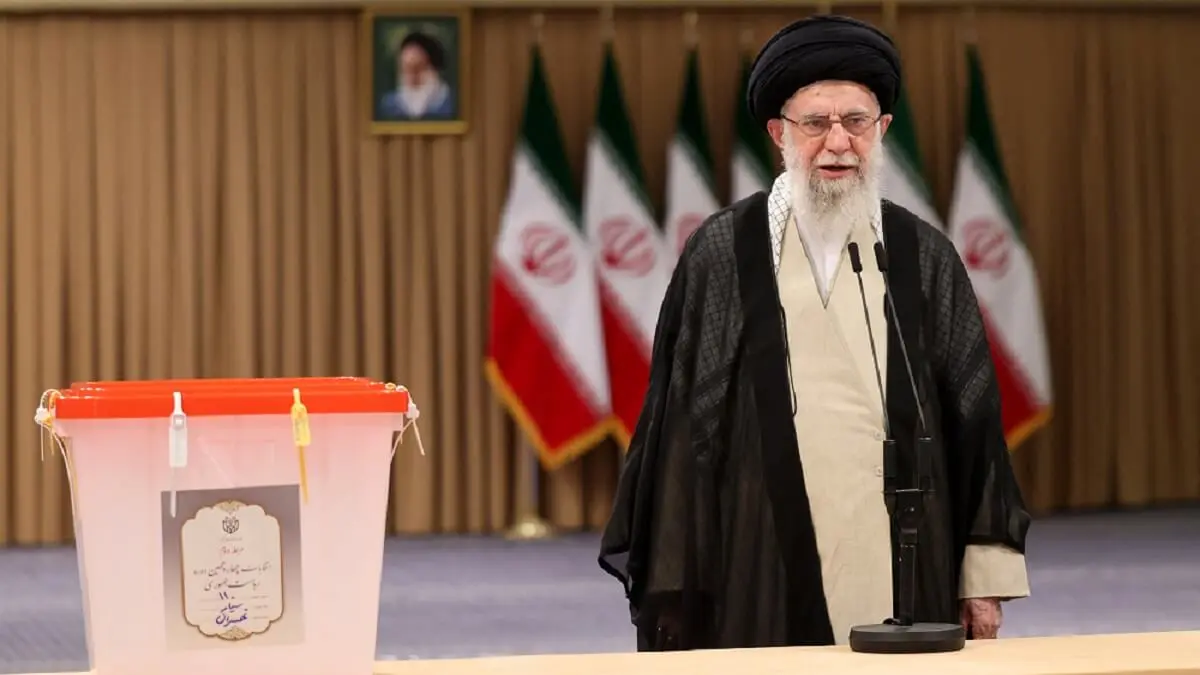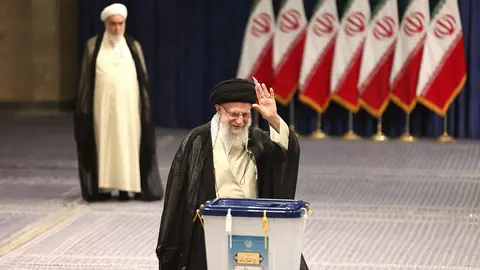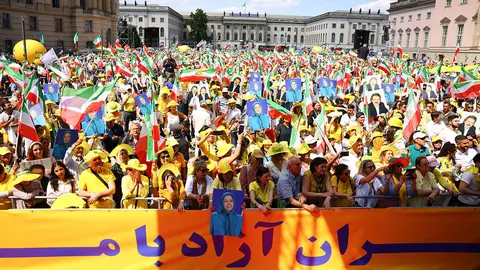Second round of Iran's presidential election

Hundreds of resistance units, under the command of the mujahideen fighting to free Iran from the mullahs' yoke, monitored more than 14,000 polling stations across Iran until midnight. According to their monitoring, at least 88% of Iranians boycotted the elections. It should be noted that voting is compulsory for soldiers, prisoners and others. For this reason, in various elections, blank votes often come first or second in certain cities or regions.
Resistance units had previously estimated public turnout at 8 per cent in the regime's last legislative elections in May, despite all the constraints.
According to the semi-official ISNA news agency, on 1 July, Mohammad Reza Tajik, chairman of the Strategic Centre of the Presidency of the Mohammad Khatami era, former president of Iran, and one of the theoreticians of the so-called reformists after the first round of elections, analysed: "The lack of people's participation (means) the practical application of the slogan 'Reformists and conservatives, it's over'. Society has reached such a degree of maturity that it no longer allows itself to be easily incited to participate by personalities; it analyses and is not a victim of the atmosphere and propaganda. And it cannot be transformed by creating a climate of intense propaganda".
In his speech at an Islamic institute on 3 July 2024, Ali Khamenei declared: "The day after tomorrow we have elections; these elections are very important. In the first round, the turnout of the people did not live up to our expectations; it was lower than we expected. There are reasons for this; the fact is that if anyone thinks that those who did not vote were opposed to the regime, they are very wrong. We know and recognise that there are people who do not really agree with the fundamentals of this regime and this government; those people also exist. But to consider that all those who did not vote belong to this group is a very big mistake. Now, we hope that in the second round, the mobilisation of the people will be exciting and will be a source of pride for the Islamic regime. I have said it many times: the participation of the people is an endorsement of the regime of the Islamic Republic. If the people participate in a clearer, better and more evident way, the Islamic Republic regime will be able to achieve its words, intentions and goals, both domestically and in its overall international strategy. This is a great opportunity for the country.
The Iranian opposition cannot but welcome with enthusiasm the possibility that, even through massive fraud, Khamenei will allow Pezeshkian, a supposed reformist, to replace Said Khalili as president under his authority. This would create a fracture at the top that would reverberate throughout society, triggering much larger uprisings than the one in 2022 and inevitably leading to the collapse of the religious dictatorship. Recall that seven years ago, during a televised debate in June 2017, Mohammad Ghalibaf, the current speaker of parliament and then presidential candidate, had to remark, referring to the social base of his reformist rival: "4% leeches suck the blood of 96% of the population", referring to those same reformists.
Popular reports from several cities:
Hamadan: The regime has attempted to display pictures of Ali Khamenei's son Mojtaba on several bridges in the city. There are whispers in Iranian circles that Ali Khamenei is trying to resolve the question of his succession through Mojtaba before these elections.
Hahajizadeh, commander of the IRGC's AEROSPATIAL, declared: "Voting is a simple task and people should participate. Every vote is like a missile for the system.
Isfahan: Outside polling stations, an exhibition on water transfer for farmers was organised to attract their votes.
Tabriz: Uniformed patrols and mercenaries have been present in the city since this morning, ensuring total security.
Rask, Sistan-Baluchestan province: The regime did not deploy mobile funds in the villages around Rask until 9am. Residents claim that the regime does not dare to withdraw these funds for fear of the villagers' reactions.
Reports of pressure exerted by the regime on prisoners:
The Saravan prosecutor has threatened prisoners by telling them that if they do not participate in the second round of the elections, their leave will be cancelled. These prisoners, who have the opportunity to work in designated workshops during the day before returning to prison at night, have also received text messages threatening them with return to detention if they do not participate in the elections.
Prisoners in Lakan in northern Iran, who enjoy semi-freedom, were warned that those who did not vote would be returned to prison. During the first round of the elections, some of them had already been forced to vote under similar threat.
In Kohnuj in Kerman province, prisoners on temporary leave or recently released from prison received messages and SMSs ordering them to come to prison to vote, with the threat that if they did not vote, they would be re-arrested and put on trial.



